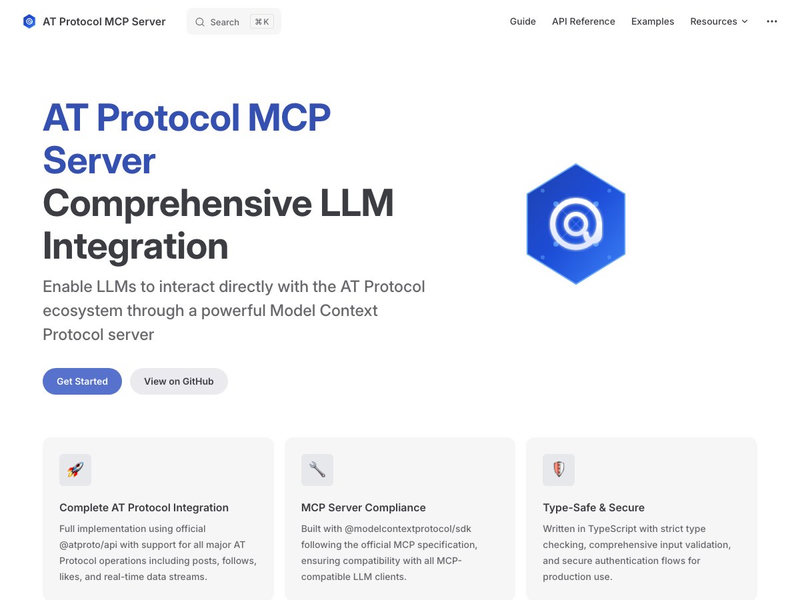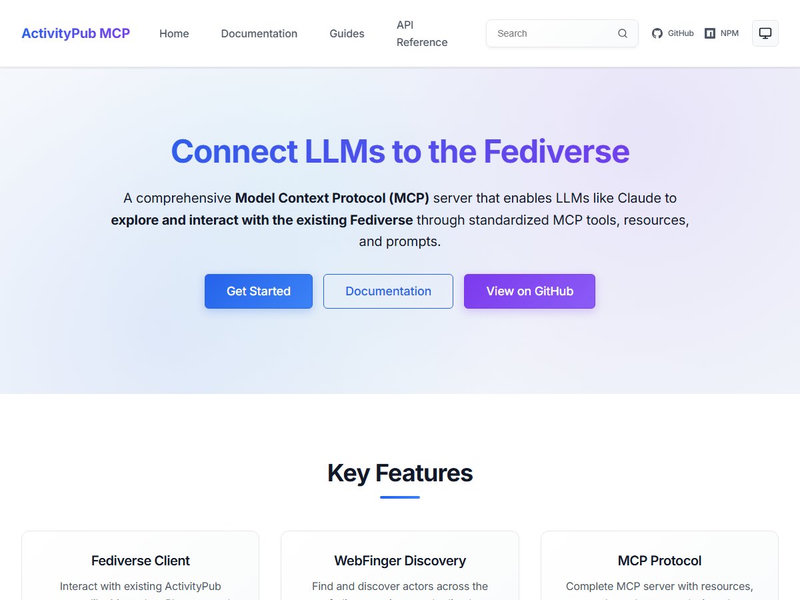$ grep -r "web-development" ~/blog/
Posts tagged with web-development
AT Protocol MCP Server: Bridging AI and Bluesky's Decentralized Social Network

AT Protocol MCP Server
A comprehensive Model Context Protocol server that provides LLMs with direct access to the AT Protocol ecosystem, enabling seamless interaction with Bluesky and other AT Protocol-based social networks.
The convergence of artificial intelligence and next-generation social protocols represents a transformative opportunity in distributed systems architecture. Today, I’m introducing the AT Protocol MCP Server—a comprehensive Model Context Protocol implementation that enables LLMs to interact directly with the AT Protocol ecosystem, including Bluesky and other decentralized social networks built on this innovative protocol.
This project addresses a critical infrastructure gap: providing AI systems with standardized, secure access to the emerging landscape of decentralized social networks that prioritize user sovereignty, data portability, and algorithmic choice. Unlike traditional social platforms, AT Protocol’s architecture enables fundamentally different interaction patterns that align naturally with AI-powered analysis and automation.
ActivityPub MCP Server: Bridging AI and the Fediverse

ActivityPub MCP Server
A comprehensive Model Context Protocol server that enables LLMs to explore and interact with the Fediverse through standardized ActivityPub integration.
The intersection of artificial intelligence and decentralized social networks represents a fascinating frontier in modern software development. Today, I’m excited to introduce the ActivityPub MCP Server—a comprehensive Model Context Protocol implementation that enables LLMs like Claude to explore and interact with the Fediverse through standardized ActivityPub integration.
This project addresses a critical gap in AI tooling: the ability to discover, analyze, and interact with the rich ecosystem of decentralized social networks that comprise the Fediverse, including Mastodon, Pleroma, Misskey, and countless other ActivityPub-compatible platforms.
Static Site Generation with Zola: A Practical Guide
Having architected static site solutions across enterprise environments for over a decade, I’ve witnessed the evolution of static site generators from simple Jekyll implementations to today’s sophisticated build systems. Zola represents a paradigm shift in this space—a tool that embodies the principles of systems engineering while maintaining the elegance that production environments demand. This analysis examines why Zola has emerged as the definitive choice for performance-critical static site generation.
Modern Web Development Best Practices
The evolution of web development from static document delivery to complex application platforms represents one of the most significant architectural transformations in software engineering. Modern web applications serve as the foundation for critical infrastructure spanning financial systems, healthcare platforms, and enterprise software—requiring engineering practices that prioritize reliability, security, and performance at scale. The principles outlined here reflect lessons learned from building production systems that serve millions of users across diverse operational environments.
Image Integration Showcase: Advanced Image Features in Zola
This post demonstrates the comprehensive image integration system implemented for this Zola-based blog, showcasing advanced features like responsive image delivery and performance optimization.
Well-known URIs: Standardizing Web Metadata Discovery
Every web developer has encountered the frustration of inconsistent metadata discovery across different websites and services. Where do you find a site’s security contact information? How do you discover OAuth endpoints? What about password change URLs for password managers? The web’s decentralized nature, while powerful, has historically led to fragmented approaches for exposing essential service metadata.
The Well-known URI standard, formalized in RFC 8615 by the Internet Engineering Task Force (IETF), provides an elegant solution to this fundamental problem. By establishing a standardized location for service metadata at /.well-known/, this specification enables consistent, predictable discovery of critical information across the entire web ecosystem.





